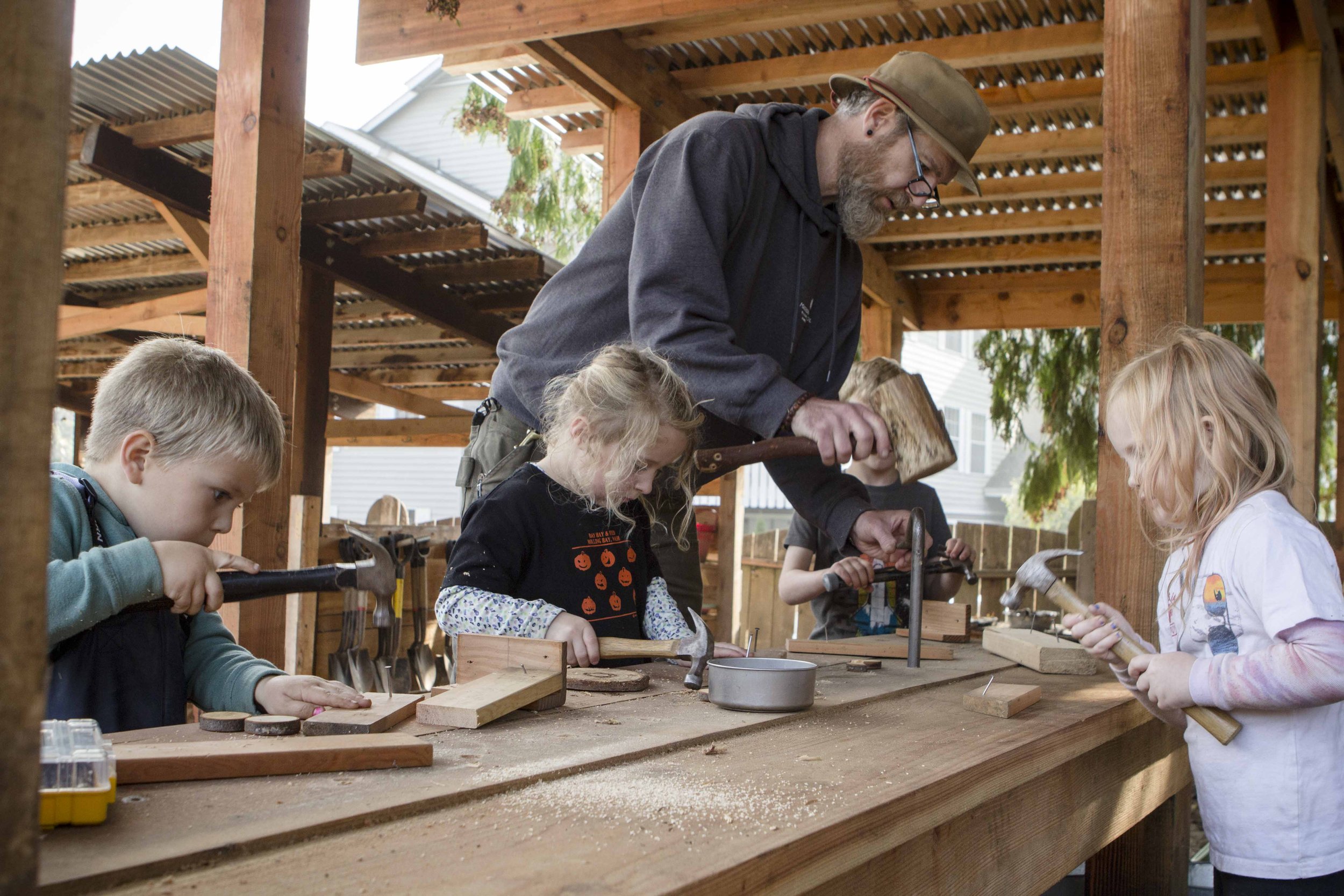Waldorf pedagogy is a developmentally appropriate, experiential, and academically rigorous approach to education. It integrates the arts in all academic disciplines for children … to enhance and enrich learning. Waldorf education aims to inspire lifelong learning in all students and to enable them to fully develop their unique capacities.
Founded in the early 20th century, Waldorf education is based on the insights, teachings, and principles of education outlined by the innovative 20th century philosopher and activist Rudolf Steiner. The principles of Waldorf education evolve from an understanding of human development that addresses the needs of the growing child.
Math, language arts, science, humanities, the arts, languages, and physical education are not simply subjects to be read about and tested. They are experienced. Through these experiences, Waldorf students cultivate their intellectual, emotional, physical, and spiritual capacities to be individuals certain of their paths and to be of service to the world.
Excerpt from AWSNA (Association of Waldorf Schools of North America)
Inspired Learning
Professors who teach Waldorf graduates across many academic disciplines and across a wide range of campuses—from state universities to Ivy League schools—note that Waldorf graduates have the ability to integrate thinking; to assimilate information, as opposed to memorizing isolated facts; to be flexible, creative, and willing to take intellectual risks; and are leaders with high ethical and moral standards who take initiative and are passionate about reaching their goals. Waldorf graduates are highly sought after in higher education.
Teachers in Waldorf schools are dedicated to generating an inner enthusiasm for learning within every child. Waldorf education is truly Inspired Learning.
““Strong intellectual curiosity, a willingness to dive into and try out new things, an ability to empathize with students who are struggling, and the confidence to express herself.””
Graduate Suceess
According to a recent survey of Waldorf graduates:
94% attended college or university.
89% are highly satisfied in their choice of occupation.
91% are active in lifelong education.
92% placed a high value on critical thinking.
90% highly value tolerance of other viewpoints.
Waldorf Pedagogy
Waldorf pedagogy is based on the idea that education should address the whole child—their physical well-being, their social and emotional well-being, and their intellectual, cognitive, and spiritual development.
Experiential and kinesthetic learning are an integral part of Waldorf pedagogy, with project-based and collaborative approaches emphasized in the classroom. This approach allows students to retain the material at a much higher level.
Waldorf education encourages a low tech approach in the early years. Children are encouraged to engage in imaginative play, hands-on work, and outdoor and artistic activities. The goal is to cultivate a strong academic and developmental foundation, social skills, and a connection to the natural world before introducing digital devices.
In Waldorf schools, students benefit from having the same teacher for several years, which fosters strong bonds and lasting relationships. Social and emotional education is prioritized, with formalized testing introduced later on in the upper grades. Storytelling, projects, experiments, and games are used as challenging academic tools. The culture of learning in Waldorf schools emphasizes human interactions and unmediated learning experiences.
Waldorf education promotes integrative and interdisciplinary thinking through critical thinking, ethical decision-making, and the development of practical skills such as public speaking, leadership, project management, and goal-oriented assignments.
The outcomes of Waldorf education are impressive. Nearly 100% of graduates attend university. Waldorf students develop curiosity, creativity, and a deep love for learning. They graduate with confidence, poise, and a genuine care for the world and its people.
Excerpt from AWSNA (Association of Waldorf Schools of North America)








